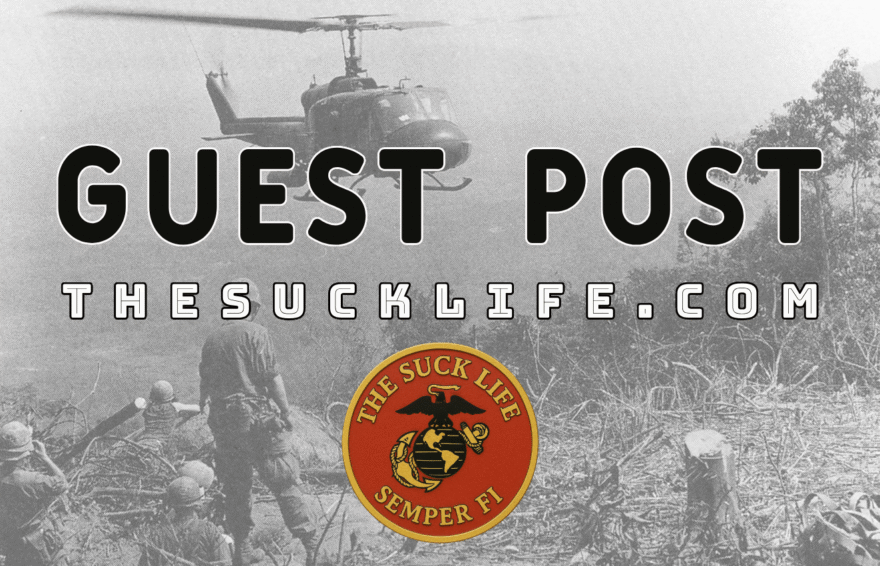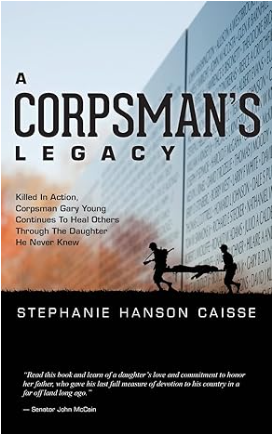Every day in Vietnam seemed like a Monday, because the weekend good times were over, and you had to get up and go off to work. In my job, there were always people eagerly waiting for me. They waited hidden, heavily armed, and ready to kill. Like every other day of that month, I got up at about four in the morning, dressed, tried to hold down my breakfast, and act calm in front of the others.
I was the Commanding Officer of HMM 263, a Marine Assault Helicopter Squadron, and it was January 1970. For that month and the next, my squadron had been assigned a mission code-named Kingfisher. We worked with the 1st Marine Regiment, as an airborne, roving assault force against NVA forces. The air portion of the force consisted of a lead Huey, my three assault CH-46s, four Cobra gunships, and an OV-10 observation aircraft. The ground element was Alpha Company, 1st Battalion, 1st Marine Regiment.
Nearly every day we would fly out before dawn to pick up the ground assault force. The Huey would be sent to scout out a designated area to look for anything that was out of place—people that should not be there. The Huey normally flew at about 1,500 feet to appear as a routine admin flight. My flight would follow two or three miles behind, carrying a reinforced platoon. We flew low, down on the deck, to limit the enemy’s observation.
When something unusual was spotted, the Huey would call on the radio, tell me what had been sighted, and we would speed up coming toward him. He would then mark the objective area with a smoke grenade, and we would land right on top of whatever was there. Every landing was a shit sandwich.
The 25th Kingfisher Mission
It was the last day of January, a Sunday, and this was the 24th or 25th Kingfisher mission I had led that month. All of these flights had come under heavy small arms and automatic weapons fire. To show the ferocity of these assaults: on an earlier mission, on the way into the zone, I came under heavy fire and the aircraft’s hydraulic boost system was damaged.
Upon landing next to a hut, six NVA soldiers came out of the hut firing AK-47s and throwing grenades. I took fifty-seven hits in the cockpit before the door gunner took them out with his machine gun. I isolated the remaining hydraulic fluid into the control system and air-taxied back to Marble Mountain to get another aircraft.
My copilot, a lieutenant colonel from the wing staff, told me he was sorry he couldn’t go back with me, but he had very important work at the wing headquarters he had just remembered. I had to take a lieutenant walking down the flight line as a surprise copilot to go back and continue the mission.
We were all right so far. What else could happen?
Blood, Sweat and Tears

I was flying PFC Mike Clausen’s aircraft that day. He had come in to me a month before and asked if he could name his airplane. I told him OK, as long as he didn’t paint a big target on the side of the aircraft. He named it after his favorite rock band, Blood, Sweat and Tears.
Mike was a great combat Marine, but he could not stay out of trouble on the ground. He was still a PFC after three years in Vietnam. The rest of the crew—the gunners, Sgt. Maj. Landy and Cpl. Marinkavic were experienced combat Marines. First Lt. Parker, the copilot, was ready to become an aircraft commander. And in all modesty, I was the best CH-46 pilot in the world.
My two wingmen were good pilots, and the gunship pilots were eager for a chance at the enemy. Just another day at the office.
The Fight
As always, the Huey found something for us to land on, and the fight was on. We inserted the first platoon and went back to pick up a second platoon to act as a blocking force. We inserted a third platoon because of heavy action. All of the landings were made into automatic weapons and small arms fire.
After the insertion of the third platoon, I was called for an emergency medevac. I had my wingman orbit while I picked up a wounded Marine in a hot zone and carried him to the hospital.
Upon my return, I was called for a second emergency medevac. This time, I picked up five Marines in the middle of a fight, who apparently had been wounded by a booby trap and automatic weapons fire.
The day just got worse as it went on.
The Minefield
Upon my return from taking the wounded to the hospital, I was informed that a group of Marines in pursuit of the enemy had inadvertently walked into a minefield. A number were badly wounded—the rest could not move. To move was to die. To compound the problem, they were under fire.
There was really no choice. I had to land and get them out of the minefield.
I told the crew what we were going to do and what might happen. I told them to take off their flak vests and stand on them, in case we landed on a mine, that would render some protection from shrapnel coming up through the floor. I also told them to stay in the helicopter, because I didn’t want them to get blown up and become part of the problem.
The crew chief, Mike Clausen, directed me into the minefield to a landing close to a number that were wounded. He guided me to put the main landing gear in a crater caused by the explosion of a mine. I was a little concerned, because that meant the nose gear, right under my feet, was either going to hit a mine or just dirt.
You pay your money and take your chances. I won. There was no explosion. Thank God for dirt.
I lowered the ramp, and Clausen went to the back of the aircraft and just walked out to pick up wounded. He did it knowing full well he could die at any step.
After we picked up the wounded at that spot, we had to move forward about ten yards because we had landed right over one of the dead. We played the same game of Russian roulette with the nose gear, and once again, out went Clausen to pick up the body.
The last group of Marines was about fifty yards away. We air-taxied over to them and played the same tune. Clausen was all over that minefield. Altogether, he got out of the airplane six times and picked up wounded and dead.
On his last trip out, another mine detonated, it knocked him down, but he got up and continued to carry a wounded man into the aircraft. It damaged our rotor system and put a few holes in the fuselage, but the aircraft was still flyable.
When we had gotten all the Marines loaded, I took them to the medevac hospital. There were eleven wounded, four dead, and four unharmed.
The platoon commander was wounded, but when we got to the medevac hospital, he refused treatment and we took him, and the four Marines who got out of the minefield unhurt, back to the action.
I cannot imagine the courage it took to go back after the horror they had been a part of.
Just Another Day
The day was not over until the fight was finished. We made three more landings to pick up the platoons we had inserted that morning and returned what was left of them to their base. Then our day at the office was over, six hours of flying and a great number of horrifying moments.
February was better. I only led seven or eight more Kingfisher missions. Then my time as the squadron commander was over. I was transferred to the wing headquarters in Da Nang to be the helicopter operations officer.
In my six months with the squadron, I flew over four hundred missions as C.O. and a total of five hundred and fifteen in-country. I was shot down three times and flew home numerous badly damaged aircraft. That kind of work plays games with your mind.
In early December, I had gone on R&R to Hawaii. I went to say goodbye to my wife and children, because I knew I could not survive the next two months. You can’t imagine how hard it was to get on that aircraft and go back to Vietnam.
Reflections
It was a bad office to work in,
but the other employees were unbelievable.
That was long ago, and I still miss them.
Would I do it again?
Yes.
I was a professional Marine, and the young men I trained in the States were sent there. I could not stay home and continue to look at myself in the mirror.
War is the failure of civilization.
It kills and destroys.
Some who survived the war carried home a courage that they had discovered in combat and used that courage to overcome obstacles that were thrown at them. Others left all their courage on the battlefield, and life was difficult at best.
I hope for the next generation a better world.
Walt Ledbetter, December 2012

 Our legacy lives through the stories we tell. The Suck Life wants yours! Make Chesty proud!
Our legacy lives through the stories we tell. The Suck Life wants yours! Make Chesty proud!



 Semper Fidelis
Semper Fidelis

